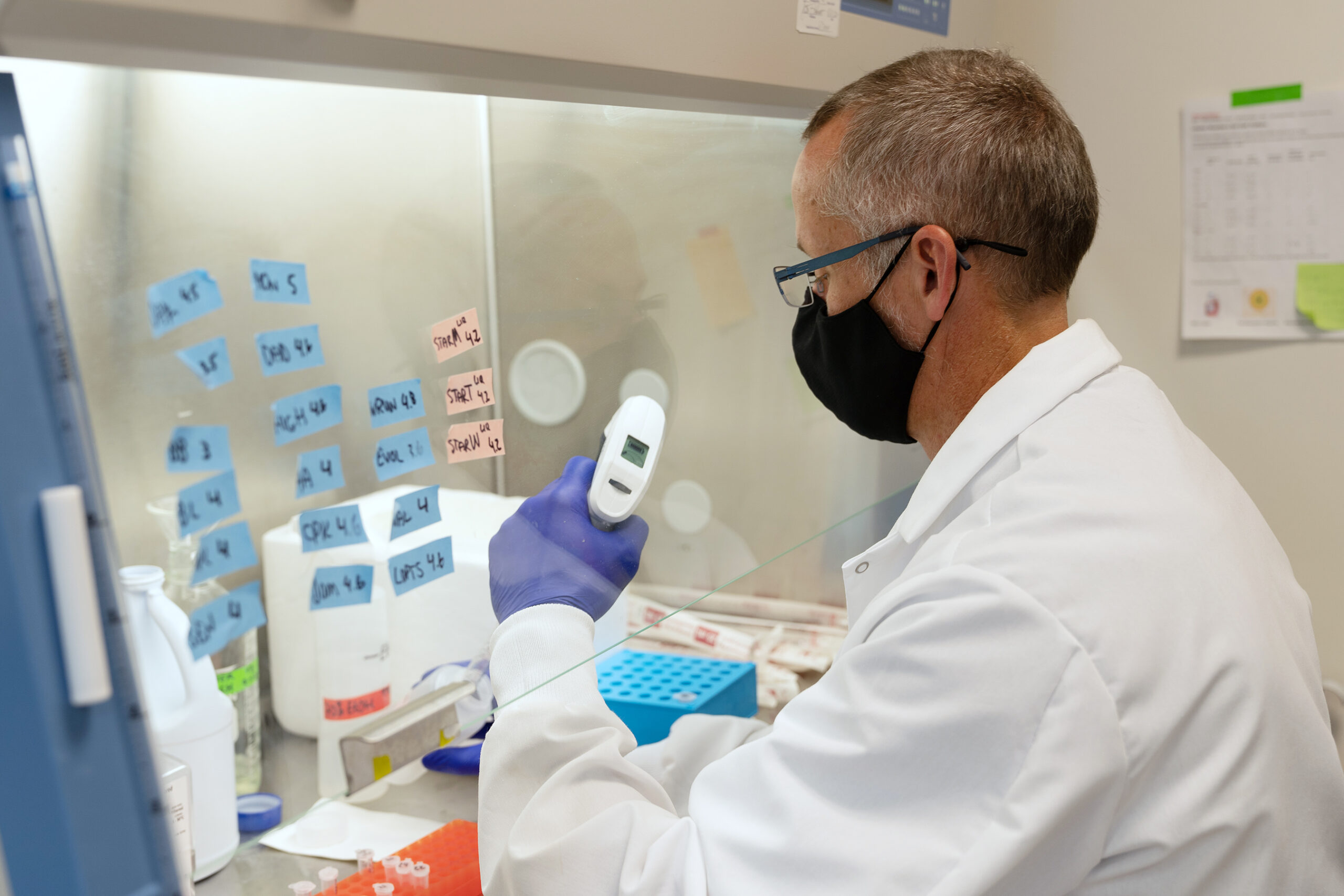WVU Today
In a time when most people are avoiding diseases like the plague, one West Virginia University biology student is pursuing them instead.
Oxford, Pa., native Jessica Towey researches in Assistant Professor of Biology Tim Driscoll’s laboratory, which studies vector-borne infectious diseases spread to humans by arthropods — such as ticks, fleas and mosquitoes. Diseases spread this way account for nearly one-sixth of all infectious diseases worldwide.
Towey studies Rickettsia rickettsii, a pathogen that lives inside certain species of ticks. If those ticks bite humans, it spreads to them and causes Rocky Mountain Spotted Fever — a treatable but serious infection. Long term, she hopes to identify vaccine targets for the disease based on the interactions of the cells where it lives.
“I find this pathogen so fascinating because it lives inside of host cells,” she said. “It has to survive in those host cells to survive in a human or an animal and cause disease.”
To enter host cells, the pathogen needs a key, which comes in the form of a protein.
“My project is focused on the interactions between Rickettsia rickettsii and the different host cells that it infects,” Towey said. “I’m examining the proteins that Rickettsia can use to adhere to and enter different cell types.”
Since beginning her graduate work in fall 2018, Towey has taught the Department of Biology’s living cell lab, an Honors College biology seminar and assisted with Driscoll’s bioinformatics lecture.
After transitioning to a mostly virtual learning and research experience, Towey’s experience hasn’t been without challenges. She reflected on what life has been like since the pandemic began nearly one year ago.
“It definitely has been a struggle, as it has been for most students and faculty. Back in March (2020), we were growing active cell cultures. We had all these plans for research over the summer. Unfortunately, the labs had to shut down initially, so I had to freeze a lot of our cell cultures. I went back to my parents’ house in Pennsylvania just so I wasn’t alone in an apartment,” Towey said. “It was definitely hard trying to working toward research and reschedule all of our plans and keep reading papers, just trying to stay in that mindset of continuing research. It was pretty tough.”
The Driscoll lab’s latest project, funded by the National Institutes of Health, is examining the genetic characteristics of a species of Rickettsia (Rickettsia buchneri) that lives inside the black-legged tick, the same tick that also transmits Lyme disease. Driscoll hopes this work will inform the development of new therapuetics.
“Rickettsia buchneri is a microbe that has never, as far as we know, been transmitted to humans or other animals. It’s passed from mother ticks through to their offspring. We don’t know much about what this microbe does for the tick or to the tick,” Driscoll said. “It could be a parasite stealing energy and other metabolites from the tick, or it might be providing some benefits to the tick. That’s what we see in other similar organisms. We’re interested in its potential to help the tick spread more widely than it currently does and thereby potentially spreading diseases.”
Driscoll is seeking master’s and undergraduate biology students to work as research assistants on the two-year project, which kicked off in January. Interested students can inquire at Timothy.Driscoll@mail.wvu.edu.
“Graduate students are key to our research lab. They design the experiments, troubleshoot problems, write papers and help write grant proposals,” Driscoll said. “They also help to mentor undergraduates. WVU has a really robust undergraduate research program. Graduate students play really a critical role of bringing undergraduates into the world of the lab, giving them the experience that they expect from the lab and helping them understand what research is all about. We would not function without our student researchers.”
TWEET @DominionPostWV




